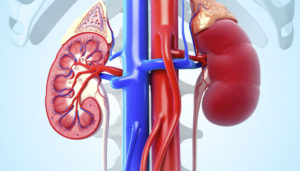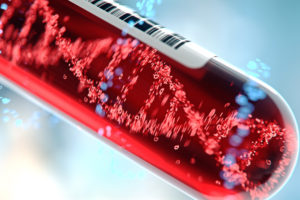FSGS FFPE Samples
Bay Biosciences provides high quality, clinical grade bio-specimens, formalin fixed paraffin embedded (FFPE) tissue blocks from patients diagnosed with Focal segmental glomerulosclerosis (FSGS).
The K2EDTA plasma and PBMC biofluid specimens are processed from patient’s peripheral whole-blood using customized collection and processing protocols.

Focal Segmental Glomerulosclerosis (FSGS) Overview
Focal segmental glomerulosclerosis (FSGS) is a rare condition that affects your kidneys. In FSGS, tiny “filters” that clean blood inside your kidneys, called glomeruli, become scarred (sclerosis).
FSGS occurs when specialized cells inside your glomeruli, called podocytes, become damaged. This damage can occur because of different factors.
“Focal” means that only some of around a million glomeruli inside your kidney are scarred. “Segmental” means that only part of each glomerulus is affected.
Types of Segmental Glomerulosclerosis (FSGS)
Based on the cause, doctors classify FSGS into one of the following types:
Primary (idiopathic) FSGS
This is the most common type of FSGS. Doctors diagnose it when they can’t pinpoint what’s causing the damage in your glomeruli.
Some researchers believe that special proteins in your blood, called permeability factors, play a role. These proteins can damage podocytes, which causes glomeruli to leak protein into your urine.
Secondary (adaptive) FSGS
If doctors can pinpoint a distinct cause for FSGS, they consider it secondary FSGS.
Health conditions that increase blood flow to your kidneys may be a cause of secondary FSGS. Elevated blood flow puts excessive stress on your glomeruli because it makes them filtrate more blood. Conditions that can cause FSGS include:
- Diabetes
- Sickle cell anemia
- Obesity
- Sleep apnea
- Other kidney diseases
Certain drugs (medication-associated FSGS) and viruses (virus-associated FSGS) may also be the cause.
Genetic (familial) FSGS
Genetic anomalies are a rare cause of FSGS. Doctors may suspect genetic FSGS when several family members have the condition.
Symptoms of genetic FSGS tend to appear during childhood. This can be challenging to treat because many children with genetic FSGS are resistant to typical treatments.
Symptoms of focal segmental glomerulosclerosis (FSGS)
Symptoms of FSGS relate to the progressive decline of kidney function. At first, they may not be apparent. But as the disease progresses, many people begin to experience a set of symptoms known as nephrotic syndrome.
Nephrotic Syndrome
Nephrotic syndrome occurs when damage to your glomeruli causes large amounts of protein to leak into your urine (proteinuria). Doctors usually discover this in a urine protein test.
Other symptoms of nephrotic syndrome include:
- Appetite loss
- Fatigue
- Foamy urine
- High Blood Pressure (Hypertension)
- Increased tendency to form blood clots
- Swelling (edema), particularly in your ankles and feet and around your eyes
- High cholesterol and triglyceride levels (hyperlipidemia)
- Weight gain
As FSGS progresses, it can cause declining kidney function. This can ultimately lead to kidney failure. Symptoms of kidney failure may include:
- Drowsiness
- Nausea
- Paleness (pallor)
- Vomiting
Diagnosis of Focal Segmental Glomerulosclerosis (FSGS)
To diagnose FSGS, a doctor will perform a thorough physical exam, ask about your symptoms, and order several specialized tests. Some of the tests include:
- Blood tests to measure your protein (albumin) and cholesterol levels
- Kidney function tests, including a glomerular filtration rate test.
- Urine tests to measure your protein levels and check for blood
Results from these tests may suggest to a doctor that you have FSGS. The only way to confirm a diagnosis of FSGS is through a kidney biopsy. This involves observing one or more samples of your kidney tissue under a microscope.
Although rare, a doctor may also recommend molecular genetic testing to confirm genetic FSGS.
Treatment of Focal Segmental Glomerulosclerosis (FSGS)
Treatment of FSGS aims to slow down or prevent the progression of the disease. If someone receive a secondary FSGS diagnosis, a doctor will most likely treat the underlying condition.
Medications used to treat FSGS include:
- Angiotensin converting enzyme (ACE) inhibitors to control your blood pressure
- Blood thinners to help prevent blood clots
- Corticosteroids and other immunosuppressive drugs
- Angiotensin II receptor blockers (ARBs) to lower the amount of protein in the urine
- Water pills (diuretics) to relieve edema
If FSGS progresses to end stage kidney disease, you may need to have regular dialysis or even a kidney transplant.
Risk Factors of Focal Segmental Glomerulosclerosis (FSGS)
According to 2020 research, FSGS is up to twice as common in people assigned male at birth than in those assigned female at birth.
FSGS is also five times more common in Black people compared with white people. According to 2021 research, this may be because of specific gene variants found only in people with African ancestry. Still, other environmental factors and stressors may also play a role.
FSGS can happen at any age, but it most often occurs in adults 45 years old or older. Experts estimate that around 7% to 10% of children and 20% to 30% of adults with nephrotic syndrome have FSGS.
Outlook of Focal Segmental Glomerulosclerosis (FSGS)
The outlook for people with FSGS varies greatly. For some patients, symptoms will resolve on their own. Even with symptoms, most people can lead typical lives.
But for some, the effects of this chronic condition can be life threatening. No treatment can repair the damaged glomeruli. Treatment can only slow down or prevent the progression of kidney disease.
Even with treatment, FSGS may still worsen over time, leading to kidney failure. If this occurs, you may need a kidney transplant or dialysis to stay alive. Even with a transplant, there’s a one-in-three chance that FSGS might return, according to a 2020 study.

Bay Biosciences is a global leader in providing researchers with high quality, clinical grade, fully characterized human tissue samples, bio-specimens, and human bio-fluid collections.
Samples available include cancer (tumor) tissue, cancer serum, cancer plasma, cancer, peripheral blood mononuclear cells (PBMC). and human tissue samples from most other therapeutic areas and diseases.
Bay Biosciences maintains and manages its own biorepository, the human tissue bank (biobank) consisting of thousands of diseased samples (specimens) and from normal healthy donors available in all formats and types.
Our biobank procures and stores fully consented, deidentified and institutional review boards (IRB) approved human tissue samples and matched controls.
All our human tissue collections, human specimens and human bio-fluids are provided with detailed, samples associated patient’s clinical data.
This critical patient’s clinical data includes information relating to their past and current disease, treatment history, lifestyle choices, biomarkers, and genetic information.
Patient’s data is extremely valuable for researchers and is used to help identify new effective treatments (drug discovery & development) in oncology, and other therapeutic areas and diseases.
Bay Biosciences banks wide variety of human tissue samples and biological samples, including cryogenically preserved at – 80°C.
Including fresh frozen tissue samples, tumor tissue samples, formalin-fixed paraffin-embedded (FFPE), tissue slides, with matching human bio-fluids, whole blood and blood-derived products such as serum, plasma and PBMC.
Bay Biosciences is a global leader in collecting and providing human tissue samples according to the specified requirements and customized, tailor-made collection protocols.
Please contact us anytime to discuss your special research projects and customized human tissue sample requirements.
Types of Biospecimens
Bay Biosciences provides human tissue samples (human specimens) from diseased and normal healthy donors which includes:
- Peripheral whole-blood
- Amniotic fluid
- Bronchoalveolar lavage fluid (BAL)
- Sputum
- Pleural effusion
- Cerebrospinal fluid (CSF)
- Serum (sera)
- Plasma
- Peripheral blood mononuclear cells (PBMC)
- Saliva
- Buffy coat
- Urine
- Stool samples
- Aqueous humor
- Vitreous humor
- Kidney stones (renal calculi)
- Other bodily fluids from most diseases including cancer.
We can also procure most human bio-specimens, special collections and requests for human samples that are difficult to find. All our human tissue samples are procured through IRB-approved clinical protocols and procedures.
In addition to the standard processing protocols, Bay Biosciences can also provide human plasma, serum, and PBMC bio-fluid samples using custom processing protocols; you buy donor-specific collections in higher volumes and specified sample aliquots from us.
Bay Biosciences also provides human samples from normal healthy donors; volunteers, for controls and clinical research, contact us Now.
- 日本のお客様は、ベイバイオサイエンスジャパンBay Biosciences Japanまたはhttp://baybiosciences-jp.com/contact/までご連絡ください。


